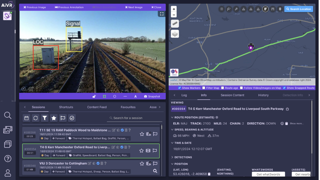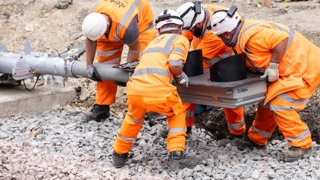The Rail Delivery Group has increased its pay offer to the RMT union, with regard to the rail dispute with the 14 Department for Transport-contracted operators.
A fresh offer has also been made to the TSSA, for management, control and station staff.
It follows rejection by drivers’ union ASLEF of an offer of a 4% pay rise backdated to April 2022 and 4% for 2023 (RAIL 975). There has been no further progress in talks with ASLEF.
As this issue of RAIL went to press, Network Rail made a revised offer to RMT. A 5% pay increase for 2022 (backdated to January 1 2022) and 4% for 2023 is offered, along with terms and conditions changes including a phased reduction from a 40-hour to standardised 35-hour week.
The RDG has offered the RMT and the TSSA 5% (or a £1,750 increase, whichever is greater), effective from the 2022 anniversary date, plus a 4% increase effective from the respective 2023 anniversary date.
It includes a commitment to no compulsory redundancies before December 31 2024, and an extension of the previous April 1 2024 date, but 800 jobs would go in voluntary redundancy.
Both unions say they will consider the offer and whether to put it to members for a vote.
RMT General Secretary Mick Lynch said: “The National Executive Committee will consider this matter and has made no decision on the proposals nor any of the elements within them. We will give an update on our next steps in due course.”
The proposals include detailed documentation covering a range of issues that affect all grade groups at the 14 operators, and “will require serious and careful consideration”, said Lynch.
The proposals on pay and job security are directly conditional on cost savings and alterations to contractual terms, entitlements, and working practices.
The RDG said it is “a best and final offer” made through an outline framework agreement, which would allow the industry to “adapt to significant changes in the ways in which passengers use the railway, while offering rewarding and varied careers”.
If accepted, it would “help recover the industry’s finances post-COVID, reducing the burden on taxpayers at a time of significant pressure on public spending”.
To read the full story, see RAIL 976
You can subscribe for print/digital access via http://www.railmagazine.com/subscribe















Login to comment
Comments
No comments have been made yet.